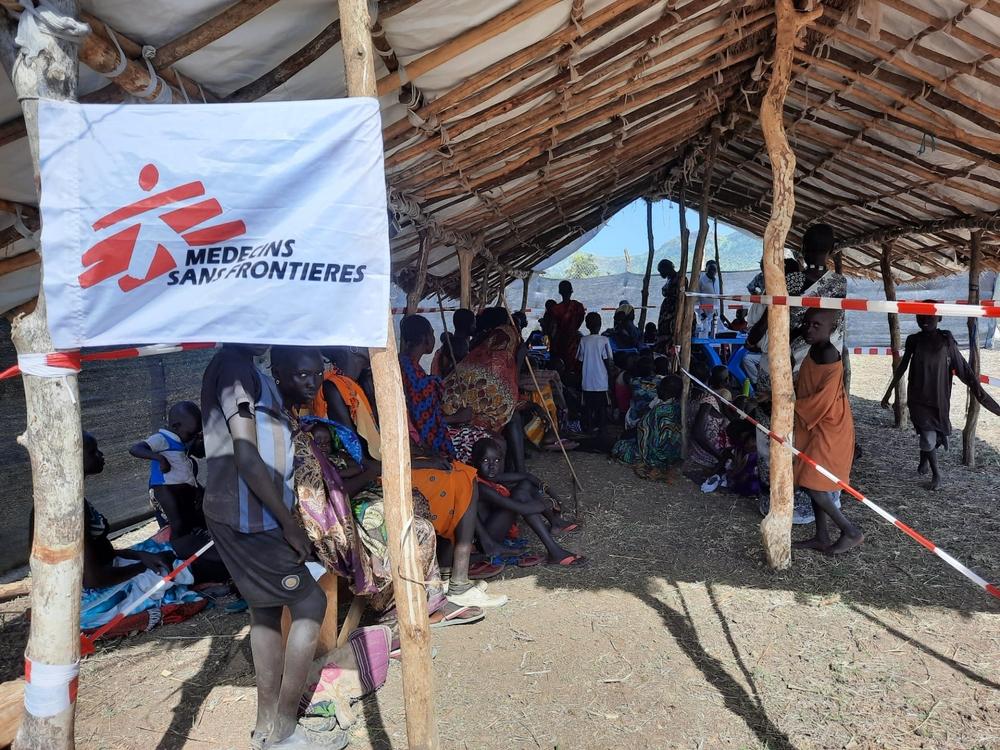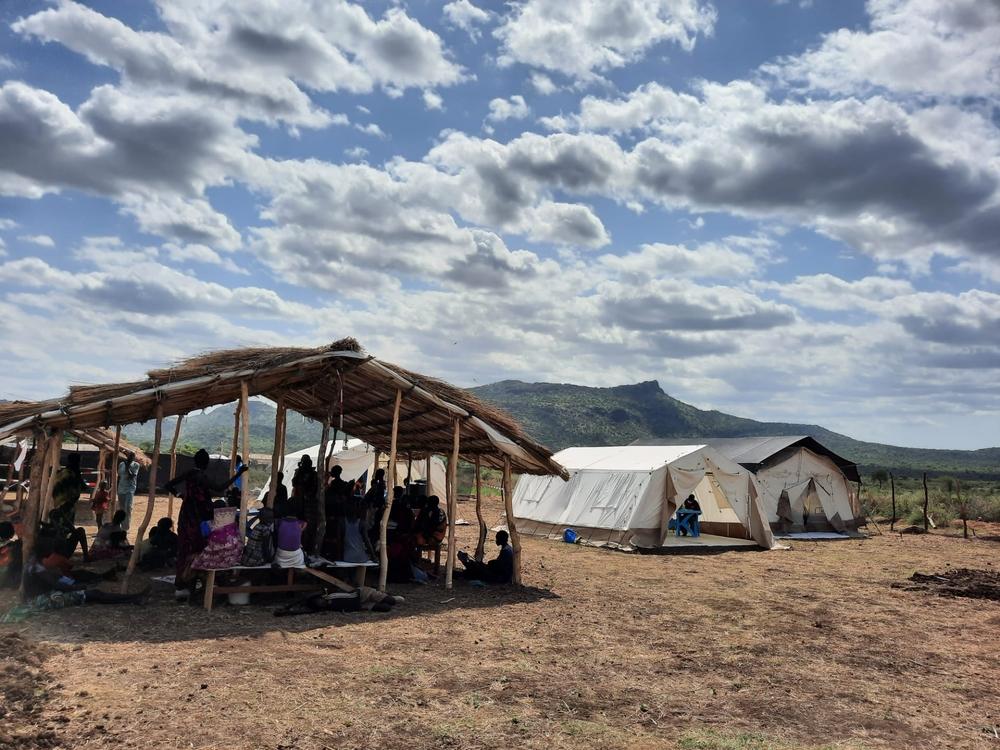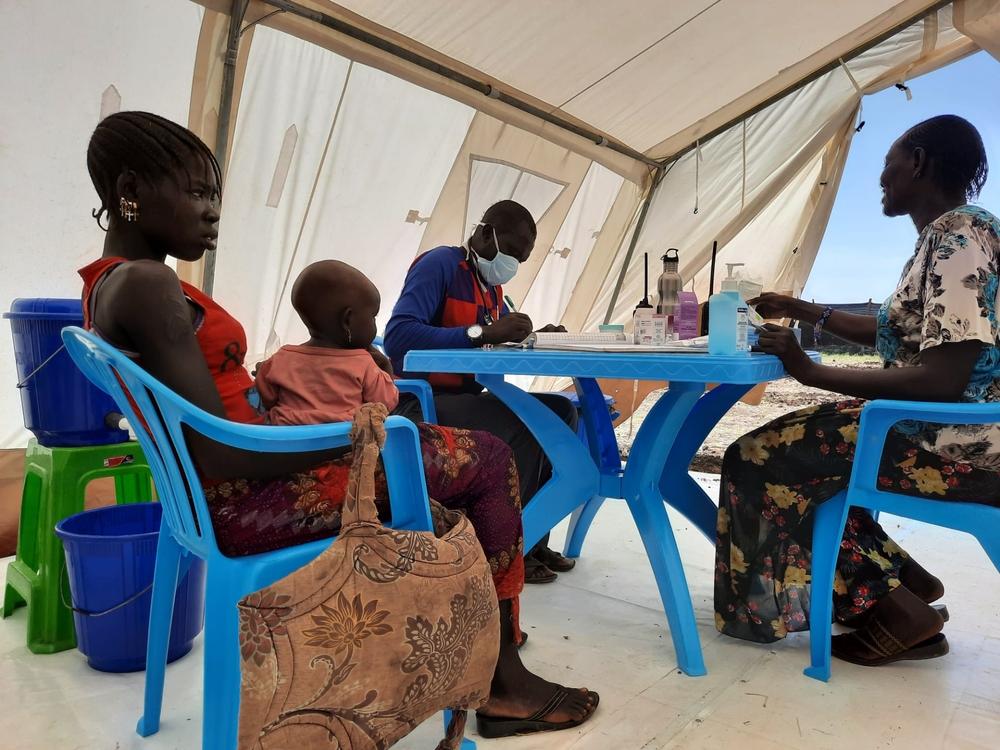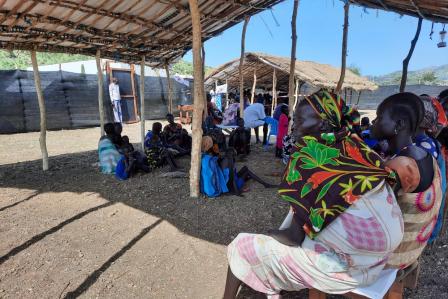MSF addresses health needs of people in remote Maruwa, South Sudan

People wait in the triage area to be registered and their parameters checked before going to the consultation. In the first day of activities in Maruwa, 122 patients got consulted. © Amandine Colin/MSF
MSF has opened a new project in the east of South Sudan’s in the Greater Pibor Administrative Area (GPAA)– a vast area near the border with Ethiopia, where people live scattered over long distances and where there are few health facilities. Many people are semi-nomadic, moving from place to place with their herds; others stay in their villages where they grow crops.
MSF teams are constructing a health centre in Maruwa and will use mobile clinics to provide medical care to people in remote villages and people on the move. Teams will also be ready to respond to any emergencies.
Recent years saw the eruption of tensions and violence between the various ethnic groups in the region. MSF was forced to close its hospital in Pibor town in December 2020 after violent attacks and looting followed by severe flooding.

After the registration, people wait in the waiting area for their consultation. Currently, there are two consultants, one for paediatrics and the other for adults. © Amandine Colin/MSF
Earlier this year, an MSF team travelled to villages in the Boma, Maruwa, Labarab and Kasangor areas to run temporary mobile clinics and assess people’s health needs. On 8 June, the team ran their first regular clinic in the Maruwa area, for people returning to their villages from ‘cattle camps’ where they had gone to find pasture for their herds during the rainy season.
On the first day, medical staff provided 122 consultations, 51 of these for children. The most common conditions were respiratory tract infections and urinary tract infections for adults, and respiratory tract infections and malaria for children. MSF is currently the only organisation providing healthcare to people in the Maruwa area.

Naïa and her mother Martha are consulted by Simon Kudju and Martha Medan. Most of the children come with respiratory tract infections, malaria and acute watery diarrhea. © Amandine Colin/MSF
MSF’s new clinic in Maruwa has a triage area, two tents for consultations and a third tent equipped with four observation beds. In time the tents will be replaced by more permanent buildings. Plans are also underway to construct a maternity area where women will receive antenatal and postnatal check-ups and where MSF staff will support traditional births attendants in ensuring safe deliveries. The team also plans to build a sterilisation unit, a laboratory and a dispensary.
In the coming months, when the dry season starts, MSF will focus on setting up community models of care, which will allow the semi-nomadic population to have access to healthcare, including when they are on the move, while fixed healthcare will be available to those remaining in their villages or in need of further medical attention.
MSF will work and support the ministry of health. By offering technical, logistical and staff trainings, the joint MSF and MoH teams will ensure that the Boma Primary Health Care Centre (PHCC) is well equipped to respond to the medical needs of the population.
________________________________________________________________________
MSF teams have been providing medical care in South Sudan’s the Pibor region since 2011. MSF currently has 13 projects across South Sudan.
